Lenovo’s new $300 tablet is what the Pixel Tablet should’ve been: Best entertainment tablet ever?
This article may contain personal views and opinion from the author.
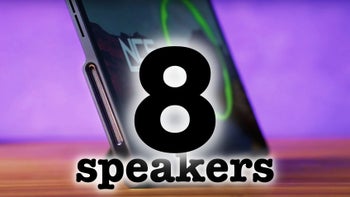
2020 was bad in many ways but it helped the tablet market make a strong comeback, and ever since then tablet makers have kept the momentum going. Apparently, the demand is there, so why not!
That being said, as not the biggest tablet fan out there (although I’m currently playing around with the iPad mini), I find it hard to get excited about a tablet.
For example, I recognize that Apple’s new iPad Pro is an engineering marvel with the best display on a consumer-ready product, and the fastest mobile chip, but this doesn’t tempt me to shell out $1,000 for a device I’ll be using only every once in a while.
That being said, I do believe a slightly more innovative twist on the familiar form-factor could turn me into a fan, and so, my big tablet hopes used to lay on Google’s shoulders. More specifically, the shoulders of the Pixel Tablet, which (unfortunately) turned out to be a bit disappointing considering the high expectations for Google’s first truly “Google” Tablet.
Now, almost exactly a year after the launch of the Pixel Tablet (as if to make a point), Lenovo might have just gone and done what Google couldn’t. Not only that, but the new Lenovo Tab Plus might simply be one of the best-value tablets around. Period.

If you were to look at it from the front, the Lenovo Tab Plus looks like any other tablet out there. But with a 90Hz 11.5-inch display, a super flexible, integrated kickstand, and eight (!) JBL speakers, the Lenovo Tab Plus is the ultimate entertainment hub. And nothing comes even close.
See, as somebody who cares about audio quality on portable electronics like phones, tablets, and laptops, you can imagine how thrilled I was to see this tablet break cover.
But here’s more about the monstrous speaker system in the Tab Plus directly from the source:
That being said, as not the biggest tablet fan out there (although I’m currently playing around with the iPad mini), I find it hard to get excited about a tablet.
That being said, I do believe a slightly more innovative twist on the familiar form-factor could turn me into a fan, and so, my big tablet hopes used to lay on Google’s shoulders. More specifically, the shoulders of the Pixel Tablet, which (unfortunately) turned out to be a bit disappointing considering the high expectations for Google’s first truly “Google” Tablet.
In fact, Google messed up a good deal when it came to the design of the only feature supposed to differentiate the Pixel Tablet from the competition - the dedicated speaker dock.
Now, almost exactly a year after the launch of the Pixel Tablet (as if to make a point), Lenovo might have just gone and done what Google couldn’t. Not only that, but the new Lenovo Tab Plus might simply be one of the best-value tablets around. Period.
The cherry on top? It manages to beat Apple’s 13-inch iPad Pro’s in one key area (for me). While costing $1,000 less. What?!
Lenovo’s new $300 Tab Plus is what the Pixel Tablet should’ve been; puts Apple’s $1,300 13-inch iPad Pro to shame in speaker test

See, as somebody who cares about audio quality on portable electronics like phones, tablets, and laptops, you can imagine how thrilled I was to see this tablet break cover.
The Lenovo Tab Plus transforms virtually any location into a personal entertainment sanctuary with 26W of crisp stereo sound. Featuring Eight JBL Hi-Fi speakers, with matrix tweeters and four force-balanced woofers housed in 4 speaker boxes (totaling 22cc), the tablet brings any bedroom or living room to life with deeper, more pronounced bass and clearer treble. In addition, it is tuned by Dolby Atmos and supports high-res audio of 24-bit and 96kHz frequency when using headphones.
To maximize the tablet’s functionality and audio system designed and engineered with JBL, the Lenovo Tab Plus transforms into a Bluetooth speaker for seamless audio anywhere, streamed from your portable device like a smartphone.
Lenovo
Lenovo
In case you’re wondering how impressive the sound coming out of the Tab Plus’ 26W speaker setup is in practice, I recommend checking out TabletBlog’s review, which compares the 8-speaker system to that of the Galaxy Tab A9 Plus (a tablet in the same $300 price category), and the latest $1,300 13-inch iPad Pro - the gold standard for tablet speakers. Or should I say, what used to be the gold standard for table speakers.
In a nutshell, the Lenovo Tab Plus simply blows both Samsung and Apple’s tablets away with insane levels of bass for a tablet, reminiscent of the dedicated Bluetooth speaker, which it kinda is - you can actually stream audio from other devices on the speakers of the Tab Plus.
Going back to the Pixel Tablet “comparison” I immediately made in my head, it becomes clear that Lenovo delivered the entertainment tablet Google couldn’t:
The only glaring disadvantage of the Lenovo Tab Plus is that, at 650g, it is relatively heavy compared to the likes of the Pixel Tablet and Galaxy Tab S9 (both weigh around 500g). Of course, Lenovo gives you a slightly larger screen (11.5-inches) compared to 11-inches on the other two, but the majority of the added weight must be due to the built-in Bluetooth speaker system and metal stand. More than a fair trade-off if you ask me
And there it is… The Lenovo Tab Plus costs a whopping $200 less than Google’s Pixel Tablet while being able to do more.
It also costs a head-spinning $1,000 less than Apple’s 13-inch iPad Pro, which no longer has the best tablet speakers on the market - shockingly, beaten by Lenovo’s $300 budget tablet.
For example, I've felt “mainstream” for carrying an iPhone at one point in time myself, but now “mainstream” is no longer “uncool”. It’s just the norm.
Every Android tablet looks like an iPad; several Android phones often take after the iPhone’s design, and overall, cool, innovative ideas on familiar products are extremely rare. In fact, save for Nothing, there’s barely anything exciting going on in the smartphone scene (I don’t count folding phones, which are a different product category).
And sure, there are many advantages to making a “mainstream” device, which looks and works “as expected”. It’s a safe bet, which doesn’t require much research and development cash, and you’re guaranteed to attract at least a handful of users who happen to be shopping around for a reliable device.
Then again, the noticeably lower, super consumer-friendly price of the Lenovo Tab Plus proves you don’t need to invest a lot to make something truly cool, useful and special. As long as you’re thinking outside the box (or the slab).
In a nutshell, the Lenovo Tab Plus simply blows both Samsung and Apple’s tablets away with insane levels of bass for a tablet, reminiscent of the dedicated Bluetooth speaker, which it kinda is - you can actually stream audio from other devices on the speakers of the Tab Plus.
Also read:
- Lenovo Tab Plus review: Crushing the iPad Pro and Galaxy Tab S (in sound and value)
The $300 Lenovo Tab Plus makes Google’s $500 Pixel Tablet (with speaker dock) look like a terrible deal
Going back to the Pixel Tablet “comparison” I immediately made in my head, it becomes clear that Lenovo delivered the entertainment tablet Google couldn’t:
- The Lenovo Tab Plus has a metal kickstand, which can be set to any angle (and is always with you) - as opposed to Google’s speaker dock, which stays pretty… still
- Unlike Google’s speaker dock, which (for whatever reason) doesn’t actually support Bluetooth at all, meaning you can only connect it to the Pixel Tablet by placing the tablet on the dock (you can’t stream music via the speaker dock when the tablet isn’t attached), the Tab Plus is the Bluetooth speaker
- The ability to connect other devices to the “Bluetooth speaker” means your multimedia/music is portable as opposed to stuck in one place/room
- The $300 Lenovo Tab Plus supports a stylus and comes with one in the box; hear that, Google?
Apart from the standout design and the spectacular sound system, the Lenovo Tab Plus’ main selling point is quite literally the price it’s going to be selling for, which is $290/€280. And that’s for 128GB (or 256GB) of storage - another unusually generous spec for this class of tablets.
- Lenovo is also very generous when it comes to the display of the Tab Plus, giving it a 90Hz LCD panel compared to the 60Hz screen on the Pixel Tablet, which is very much stuck in the past
- For what it’s worth, the Lenovo Tab Plus also has a larger battery than the Pixel Tablet - although this should be offset by the power-hungry sound system
- What won’t be offset is the much faster charging the Lenovo Tab Plus brings - that’s 45W versus 15W with the Pixel Tablet
- Seemingly not too powerful on the surface, the MediaTek chip on board is actually on par with (or faster) than other $300 tablets in this class - like Samsung’s Galaxy Tab A9 Plus
Lenovo’s new $300 tablet reminded me why “mainstream” used to be the dirtiest word in tech
The only glaring disadvantage of the Lenovo Tab Plus is that, at 650g, it is relatively heavy compared to the likes of the Pixel Tablet and Galaxy Tab S9 (both weigh around 500g). Of course, Lenovo gives you a slightly larger screen (11.5-inches) compared to 11-inches on the other two, but the majority of the added weight must be due to the built-in Bluetooth speaker system and metal stand. More than a fair trade-off if you ask me
It also costs a head-spinning $1,000 less than Apple’s 13-inch iPad Pro, which no longer has the best tablet speakers on the market - shockingly, beaten by Lenovo’s $300 budget tablet.
All in all, what I take away from Lenovo’s bold, very much “niche” approach when it comes to making this super cool piece of tech reminds me why “mainstream” used to be the worst, dirtiest word in tech.
For example, I've felt “mainstream” for carrying an iPhone at one point in time myself, but now “mainstream” is no longer “uncool”. It’s just the norm.
Every Android tablet looks like an iPad; several Android phones often take after the iPhone’s design, and overall, cool, innovative ideas on familiar products are extremely rare. In fact, save for Nothing, there’s barely anything exciting going on in the smartphone scene (I don’t count folding phones, which are a different product category).
And sure, there are many advantages to making a “mainstream” device, which looks and works “as expected”. It’s a safe bet, which doesn’t require much research and development cash, and you’re guaranteed to attract at least a handful of users who happen to be shopping around for a reliable device.
S**t! Am I about to buy a Lenovo tablet?!







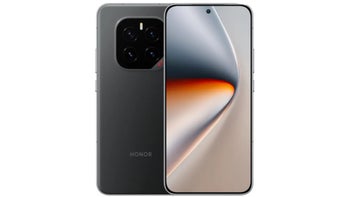
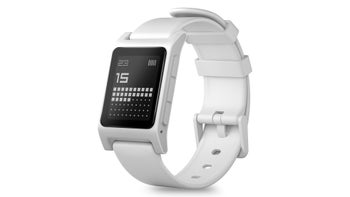
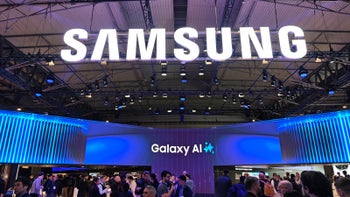
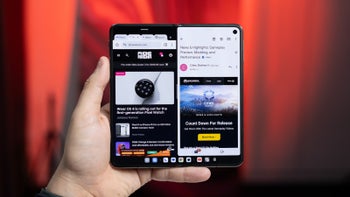


Things that are NOT allowed: